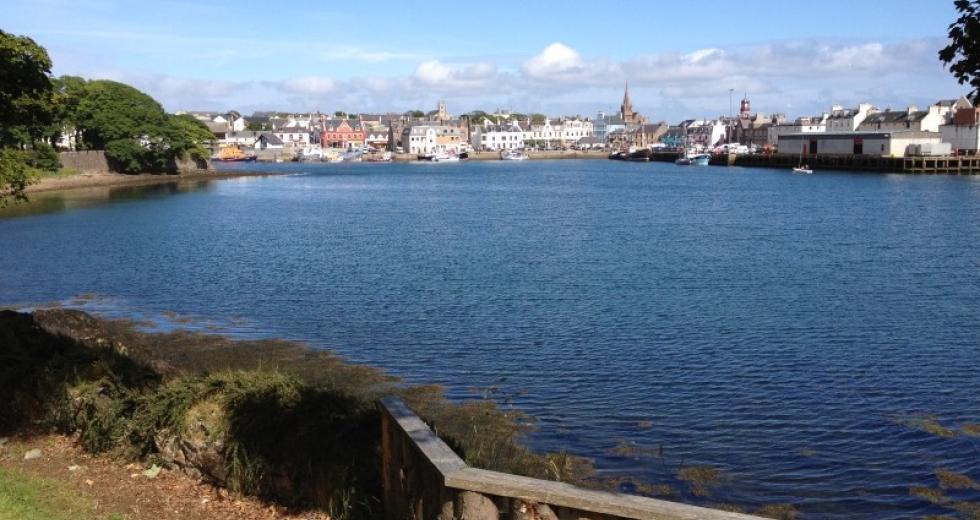
This is the latest in a series of Freedom of Information-based studies of Covid deaths in Scottish regions by the same author.
This article, following on from my previous articles, presents facts and findings from my Freedom of Information (FoI) requests on the recent ‘pandemic’ in relation to different healthcare areas in Scotland. In this article, the focus is on the Western Isles.
NHS Western Isles is an NHS board serving the Outer Hebrides of Scotland (Gaelic: Na h-Eileanan an Iar) and is responsible for providing primary and secondary healthcare to the 26,000 people in the Outer Hebrides. It employs over 1,000 staff (excluding GPs and dentists). NHS Western Isles has three hospitals. The largest is Western Isles Hospital, a rural general hospital located in Stornoway, the islands' only fully-fledged town.
Arrival of ‘the virus’
On 31 March 2020, the islands were told of two ‘cases’ and were thereafter plunged into unprecedented draconian lockdowns. The Member of the Scottish Parliament (MSP) for the area, Alasdair Allan of the Scottish National Party, said:This news shows that no corner of Scotland is safe from the virus.The BBC later reported, in October 2020 (emphasis added):
The first major Covid–19 outbreak in the Western Isles has been declared over by the local health board. More than 50 people were infected, one person died and more than 280 contacts were asked to self-isolate in the outbreak that affected Uist.And yet, as will be seen below, the reality was far more positive and totally at odds with the fear mongering. The FoI response shows that in 2020 there were no Covid deaths directly from, or even with, SARS–CoV–2 in any Western Isles hospital.

NHS Western Isles FoI response
Remarkably, not one of the islands’ 26,000 residents died directly from ‘the virus’ or even ‘with’ ‘the virus’ (the latter being the more generous statistical measure of Covid as an underlying cause) in 2020 within the hospital setting. Not a single death was recorded ‘from Covid’ over the entire three years of the alleged pandemic in anyone in the Western Isles with no known underlying health conditions. It appears that this particular corner of Scotland was, in fact, very safe from ‘the virus’. Even more remarkably, over the full three years of ‘the pandemic’, there were only 10 ‘Covid’ deaths ever recorded in hospitals even in the vulnerable: that is, among all patients over 45 years of age with serious pre-existing conditions.

With regard to the BBC report of one death as of October 2020, correlation with official statistics on all-cause mortality and in care homes shows that this was the only ‘Covid’ death ever to occur in the Western Isles in 2020 (within the care home setting). A ‘Covid’ death was once mentioned on a death certificate listed with other causes. The finer details were excluded from public view.

‘Long Covid’ panic
Even in October 2020, just half a year into ‘the pandemic’, health boards were already promoting the concept of ‘long Covid’, despite the admission that most people who caught ‘the virus’ were not very ill and were able to recover at home without any treatment.
As repported by the BBC, NHS Western Isles said the following (emphasis added):
Although most people who contracted the infection were not especially unwell and were able to recover in their own homes, some required medical assistance or hospitalisation, so we are very aware that this virus is not only very infectious but also can cause significant problems to some people. There are also the additional long-term unknown risks associated with 'long Covid'.
Yet no ‘long Covid’
However, a very recent FoI response from the health board shows that there were zero diagnoses of ‘long Covid’ in 2020—and, remarkably, fewer than seven cases over the entire three-year period of the ‘pandemic’. In fact, overall numbers were so small that they could not be revealed due to privacy concerns, and it was noted that even this handful may be over-reported.
Mainstream media oblivious to these facts
The BBC Scotland journalist Andrew Thomson, based in Inverness and covering the Highlands and Islands, was tweeting about the condition towards the very end of 2021. Why was he not apparently aware of and reporting on this data?
The prominent charitable group Long Covid Kids Scotland was also promoting the concept of the illness in the Western Isles by contacting MSPs and seeking £18,000 for CO2 monitors and other measures to increase ventilation in schools for a problem that was all but non-existent locally.

A large UK-based study on children covering the first fourteen months of the ‘pandemic’, including the Alpha, Delta and Omicron variants, shows that 100% of children had a full recovery, even amongst the minority that did have severe Covid. No CO2 monitors were required:
[…] unlike adults, hospitalisation with a positive SARS–CoV–2 PCR-test is not a useful marker of severe COVID–19 in children.
[…] the vast majority of hospitalised CYP [children and young people] (especially healthy CYP) with confirmed SARS-CoV-2 infection do not have severe COVID–19, irrespective of SARS–CoV–2 variant, while the minority with severe COVID–19 recovered without complications.
Non-Covid death toll exceeds that of ‘the virus’
Despite the hysteria over the effects of ‘the virus’, non-Covid mortality was the main driver of all Western Isles deaths during ‘the pandemic’, accounting for over 99% of all deaths that had ever occurred at the islands’ main hospitals over a three-year period. The BBC, however, always remained focused on the one solitary death ‘involving’ ‘the virus’ of an elderly resident in a care home. Is this balanced and fair reporting?
In a report by the BBC on 24 March 2021, NHS Western Isles Chief Executive Gordon Jamieson said:
Did the Covid ‘vaccines’ work?
The vaccine works. There's no question about that. "We have the highest (vaccination) rates in Scotland and we will continue to push with the vaccination programme to give the population here the highest level of protection we can.However, in a later publication in November 2021, the BBC reported that the islands had suffered more ‘Covid’ deaths, more ‘infections’ and more deaths from all causes after the ‘vaccine’ rollout:
The health board said it had recorded 36 cases on Thursday—the highest daily case number on the islands since the start of the pandemic.This heightened death toll under the injection régime continued into 2022.
Lowest hospital mortality on record in a pandemic
The facts clearly show that deaths from all causes occurring at all three main hospitals on the islands were at a historic low in 2020, the first year of ‘the pandemic.’ However, as also seen in data from other Scottish health boards, deaths in this region in 2022 were at a record high, despite the emergence of weaker ‘viral variants’ and some of Scotland’s and the world’s highest ‘vaccination’ rates.
Reflections of disconnect between reporting and reality
Despite claims to the contrary by officials, the evidence presented here indicates that there was no serious pandemic present in the Western Isles over the three years of the claimed duration. In this region as in others, deaths with ‘the virus’, ‘cases’/‘infections’ established by unreliable PCR test results, and all-cause mortality all increased after the rollout of the experimental Covid injections. The notion of any lives having been saved by mitigation of infection, including by way of the mass ‘vaccination’ campaign, is pure speculation.
Epidemiologist Dr Ashley Croft was commissioned by the Scottish Covid–19 Inquiry to write a report, in which he made the following statements after looking at the peer-reviewed evidence from Cochrane (formerly the Cochrane Collaboration) on mass Covid ‘vaccinations’¨
It is unclear as to whether or not mass vaccination has made any difference to the numbers of deaths from Covid–19.
[...] We cannot confidently say these vaccines prevent deaths.These comments were ignored by the print media in Scotland, as was his oral testimony to the same effect. The real-world data presented here and from other health boards only solidifies Dr Croft’s remarks and the findings of the Cochrane reviewers.
Summer 2023 update: hysteria over facts continues
In July 2023, the BBC reported the following:A ward at Western Isles Hospital in Stornoway has been closed to new admissions after it was linked to a number of positive cases of Covid–19.Temporary visiting restrictions were then introduced:
Visitors must ensure that they book visits in advance and should wear a face mask.The information presented in this article is readily available to MSPs and public health officials such as the Scottish Government’s national clinical director, Professor Jason Leitch, but as of 20 August 2023 the BBC continues to promote unjustified fear instead of facts. From the following statements, it seems that Mr Leitch is also none the wiser to any of this data:
On Sunday two wards at Western Isles Hospital in Stornoway re-introduced some restrictions following a "small number" of Covid cases.
These included asking both visitors and all clinical staff to temporarily wear face masks until further notice.Therefore, the questions I would ask are these: Is the BBC reporting all the facts to hold power to account? Is the BBC’s reporting balanced and fair—as insisted by Huw Edwards?
We have truth and accuracy, two of the BBC’s basic news values.If that statement were true, I doubt that I, as a private citizen, would feel the pressing need to research the data region by region and write these articles. Main image: Baile Steòrnabhaigh, Lorna M. Campbell | licence CC BY-SA 4.0

